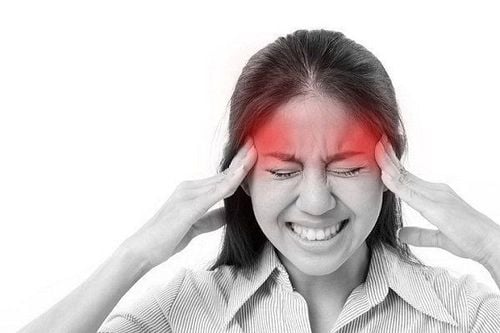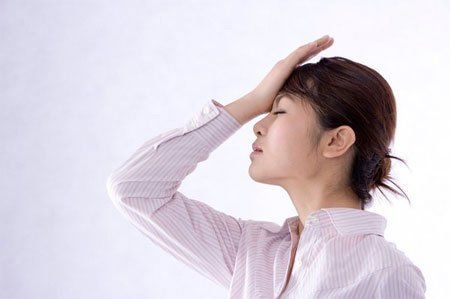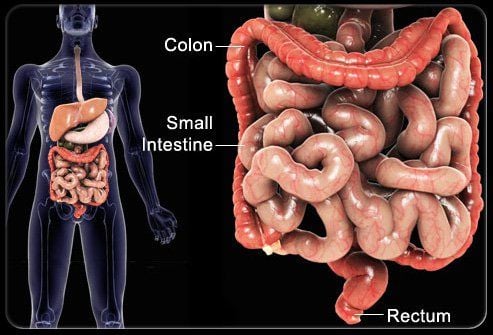This is an automatically translated article.
A tension headache is generally a diffuse, mild to moderate pain in the head and is often described as feeling like a tight band around the head. There are many ways to treat and manage tension headaches. The article will help you get effective stress relief and use medication appropriately.1. Tension headaches
Tension headaches are the most common type of headache, the causes of which are still poorly understood. Tension headaches are dull, tight, or pressure headaches around the forehead or back of the head and neck. Some say it feels like a clamp is squeezing their skull. They are also known as tension headaches and are the most common among adults. Tension headaches can be divided into 2 types:Cluster tension headaches occur less than 15 days in a month. Chronic tension headaches occur more than 15 days a month. These headaches can last from 30 minutes to several days. The episodic tension-type headache usually begins gradually, often occurring in the middle of the day. Whereas chronic pain comes and goes for a longer period of time. The pain may become stronger or lessen during the day, but it is almost always present. Although painful, tension headaches usually don't prevent us from participating in daily activities, and they don't affect your vision, balance, or strength. Tension headaches can:
Start at the back of the head and spread forward Become a dull band of pressure or tightening pain around the entire head Affects both sides of the head equally Causes Tension and pain in neck, shoulder, and jaw muscles Common symptoms of tension headaches include:
Mild to moderate pain or pressure in the front, top, or sides of the head Headaches that start later During the day Difficulty sleeping, not getting enough sleep Feeling very tired Irritability Sensitivity to light or noise Muscle pain Unlike migraine, people with tension headaches will not have other neurological symptoms , such as muscle weakness or blurred vision. And tension headaches usually don't lead to severe sensitivity to light or noise, upset stomach, nausea or vomiting....
There are many possible causes of headaches as long as These factors can cause stress for the patient. Some people get tension headaches because the muscles in the back of the neck and scalp are tight.

Căng thẳng gây đau đầu thường không có các triệu chứng thần kinh khác kèm theo
Insufficient rest Failure to maintain correct posture while lying, sitting or working Emotional or mental stress, including depression Anxiety excessive fatigue Fatigue Not eating enough Iron deficiency Abuse of stimulants such as alcohol, tobacco, caffeine... Jaw or tooth problems Dehydration Skipping meals Colds, flu or sinusitis Up to 80% of adults People in the United States still suffer from tension headaches from time to time. 3% of these suffer from chronic daily tension headaches. Women are twice as likely to get the disease as men. Most people get cluster headaches no more than once or twice a month, but they can happen more often. Many people with a chronic condition usually live with the condition for more than 60 to 90 days.
2. 4 ways to relieve tension headaches
For those who have experienced tension headaches, they probably understand the difficulties they face during that time. Tension headaches usually appear in the afternoon and cause mild or moderate pain that can be felt as a dull ache or as a band of pressure. Tension headaches occur when the muscles of the neck, shoulders, and scalp are tense. Some people experience occasional tension headaches; while others may get it more often. While a tension headache is rarely debilitating, it can certainly make life difficult. If you have frequent tension headaches (once or twice a week), the following method box may be helpful to show you how to get rid of the headache.Pay attention to the basics. The basics mentioned here include getting enough sleep, not skipping meals, eating and living in moderation to avoid stress and fatigue. Relaxation techniques. Physical and psychological relaxation therapies can help relieve tension headaches, as long as we practice these techniques regularly. Physical methods include applying heat to the neck and shoulders to relax the muscles. Exercising these muscle areas also helps to strengthen and stretch them. Guided visualization exercises that help us focus our attention on different parts of the body for relaxation and stress relief can also be helpful. Biofeedback. This relaxation technique requires special instruction but can help people avoid recurring tension headaches. Usually, a therapist attaches electrodes to the patient's skin to detect electrical signals from their neck and shoulder muscles. The person will then learn to recognize when they are becoming tense and practice ways to relax the muscles before they tighten to the point of giving them a tension headache. Medical approach. Some people with tension headaches have very sensitive areas, called trigger points, at the back of their neck or in the shoulders. Injecting a local anesthetic into these areas can eliminate pain and prevent headaches from recurring. There are also some medications that can help with tension headaches. If non-pharmacological therapies do not provide relief from headaches, doctors can prescribe a number of medications that are suitable for the patient's condition.

Các liệu pháp thư giãn có thể giúp bạn giảm cơn đau đầu căng thẳng thần kinh
3. Prevention of tension headaches
One of the top ways to improve tension headaches is to prevent them from happening.Try these treatments to make your headaches less severe or less frequent.
Find ways to relax and manage stress such as:
Biofeedback Cognitive behavioral therapy Acupuncture Massage therapy Physiotherapy Deep breathing Meditation Yoga Hypnotherapy Lifestyle changes may also help . The following lifestyle changes can help prevent tension headaches effectively:
Reduce stress. Try to plan and do the work in an organized manner. Things that relax the body, like massage or meditation, can also help. Try to speed yourself up. Breaks. Take time to do the things you enjoy. For some people, it can be helpful to meditate mindfully rather than chasing anxious and fearful thoughts. Build your own support system. Make time for the people you love. You may also want to schedule some therapy sessions with a therapist to find solutions and manage any anxiety or depression you may have. Exercise regularly. At least 30 minutes a day five days a week is the ideal time to exercise. It relieves stress and keeps the body healthy. It also helps to stretch certain muscle areas. Pay attention to the jaw, neck, and shoulders. These are areas of high pressure where we tend to hold a lot of stress. Get enough sleep . With enough rest, it's much easier to deal with everyday stress. Improve posture. A good, steady posture can help keep your muscles from becoming tense. When standing, keep your shoulders back. Firming abdomen and buttocks. When sitting, make sure your thighs are parallel to the floor while your head and neck don't fall forward. Drink a lot of water. If you're dehydrated, you're more likely to get a tension headache. Drink enough water every day, even if you are not thirsty. Eat balanced and regular meals each day. Skipping meals can cause headaches. Try to eat at specific times each day. Include more fruits, vegetables and whole grains in your diet. Limit caffeine and alcohol. Caffeine can be irritating and make headaches worse. Drink less coffee and tea with energy drinks and soft drinks. Limit pain medication. Use the smallest dose possible. Do not take pain relievers more than once or twice a week. Use a diary to record moments that feel like a headache. This will help us detect triggers. It will also help your doctor come up with a treatment plan. When you have a headache, write down things like the date, time, any warning signs or other symptoms, the location and intensity of the pain, what you're doing, the medications you've taken, and the food you eat. you ate.

Ngủ đủ giấc giúp bạn đối phó với cơn đau đầu căng thẳng thần kinh tốt hơn
Please dial HOTLINE for more information or register for an appointment HERE. Download MyVinmec app to make appointments faster and to manage your bookings easily.
References: mayoclinic.org, health.harvard.edu, webmd.com












